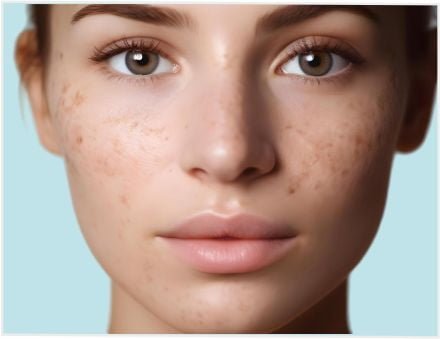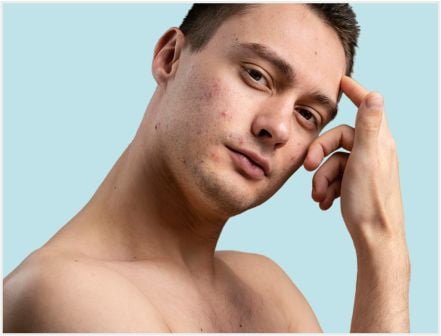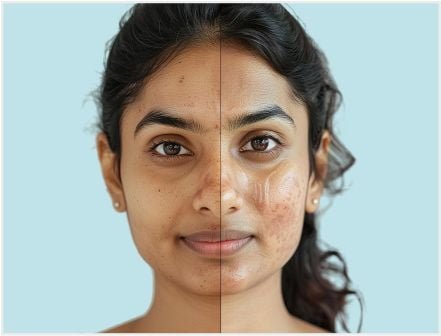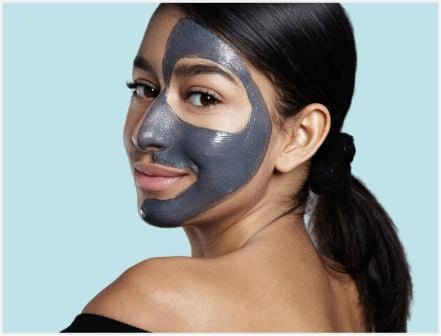

Introduction

- This article explores how ageing affects skin pigmentation, including issues like dark spots and uneven tone.
- We’ll discuss preventive measures, effective treatments, and natural remedies to manage and improve skin health.
- Learn about the importance of professional skincare advice and how to embrace ageing with confidence.
- Our goal is to help you achieve and maintain a radiant, healthy complexion throughout the years.
- Decreased Collagen Production: As we age, several factors contribute to changes in skin pigmentation. One key factor is decreased collagen production. Collagen is crucial for maintaining skin’s structure and elasticity, and its decline leads to thinning skin that can more easily develop uneven pigmentation.
- Increased Melanin Production: Additionally, ageing skin often experiences increased melanin production. Melanin is the pigment responsible for skin color, and its overproduction can result in age spots or liver spots, which are common in older adults.
- Sun Damage Accumulation: Prolonged sun exposure also plays a significant role in pigmentation changes. Over the years, ultraviolet (UV) radiation damages skin cells, leading to an accumulation of pigment in certain areas, often manifesting as dark spots or uneven skin tone.
- Hormonal Changes: Hormonal changes, particularly those related to menopause, can further influence skin pigmentation. Fluctuations in hormone levels, such as decreased estrogen, can affect melanin production and contribute to pigmentation issues.
Overall, the interplay between reduced collagen, increased melanin, sun damage, and hormonal changes leads to noticeable alterations in skin pigmentation as we age.
1. How Ageing Affects Skin Pigmentation

2. Common Types of Age-Related Pigmentation Issues

- Age Spots (Liver Spots): These are flat, dark spots that appear on areas of the skin exposed to a lot of sun, such as the face, hands, shoulders, and arms. They develop from prolonged sun exposure over time, which causes excess melanin to build up in certain spots on the skin.
- Freckles: Freckles are tiny, light brown spots that people often get due to their genetics and extra melanin from sun exposure. They are more noticeable on fair skin and can darken with increased sun exposure.
- Sunspots: Sunspots, also called solar lentigines, resemble age spots but appear earlier and cover a larger area. Both freckles and sunspots can become more pronounced as we age due to repeated sun exposure.
- Melasma:
- Melasma causes large, dark patches on the face, especially on the cheeks, forehead, and upper lip. It often occurs due to hormonal changes, such as during pregnancy or while using birth control pills, and can worsen with sun exposure. It results from excessive melanin production.
- Treating melasma can be challenging and usually requires special treatments and diligent sun protection.
- Sun Protection: Daily use of sunscreen is crucial in preventing further pigmentation issues. Sunscreen helps shield the skin from harmful UV rays that can exacerbate existing age spots and lead to new ones. It’s essential to use a broad-spectrum sunscreen with at least SPF 30, applying it every morning and reapplying every two hours if you’re outdoors. Sunscreen not only protects against sunburn but also prevents the breakdown of collagen and the overproduction of melanin.
- Avoiding Excessive Sun Exposure: Managing your time in the sun is another important aspect of preventing pigmentation changes. Aim to seek shade during peak sun hours, usually between 10 a.m. and 4 p.m. Wearing protective clothing, wide-brimmed hats, and sunglasses can also reduce direct sun exposure. Regularly checking your skin for changes is an additional way to minimize sun damage.
- Skin Care Routine: Incorporating specific ingredients into your skincare routine can help maintain an even skin tone. Look for products containing antioxidants like vitamin C, which neutralize free radicals and reduce melanin production. Ingredients such as niacinamide can lighten dark spots and even out skin tone. Additionally, using products with SPF in your daily skincare routine offers an extra layer of protection against UV damage. Regularly exfoliating the skin can also help remove dead cells and prevent the buildup of pigmentation.
Together, these strategies can help keep your skin looking even and youthful by minimizing further pigmentation changes and protecting against sun damage.
3. Preventive Measures to Maintain Even Skin Tone

4. Effective Treatments for Reducing Age-Related Dark Spots
Topical treatments
Topical treatments for reducing age-related dark spots include Vitamin C serums, which brighten and even skin tone; retinoids, which accelerate cell turnover and fade spots; and hydroquinone, a skin-lightening agent that inhibits melanin production. Regular use of these products can significantly diminish dark spots and improve skin clarity. However, these ingredients must suit your skin type and must not react with any of your current skin concerns. It is best to get consultation from an experiencedDermatologist before trying them on your own.
Chemical Peels:
Chemical peels use acids like glycolic or salicylic acid, exfoliate the skin’s surface to remove dark spots and stimulate new skin growth. They improve skin tone and texture by breaking down melanin clusters and encouraging cell turnover, leading to a clearer, more even complexion with continued treatments. Some of our most effective peels are Power Pumpkin Peel, Mango Brite Peel, Skin Rejuvenation Peels and Skin Brightening Peel.
Q- Switch Laser Therapy:
This non-invasive procedure uses short, high-energy laser pulses to target and break down melanin deposits in the skin. The laser’s energy is absorbed by the dark spots, causing the pigment to fragment and be naturally eliminated by the body. This treatment helps to lighten age spots and improve overall skin tone without damaging surrounding tissues.
Typically, patients require multiple sessions for optimal results, and the procedure is generally well-tolerated with minimal downtime. Post-treatment care includes sun protection and moisturizing to support healing and prevent recurrence.
Microdermabrasion:
Microdermabrasion involves using tiny crystals or a diamond-tipped device to gently exfoliate the skin’s surface, removing dead skin cells and dark spots. This treatment stimulates collagen production and promotes cell turnover, resulting in a more even skin tone and reduced appearance of age-related dark spots with minimal downtime.
- Diet and Nutrition: Antioxidant-Rich Foods: Consuming foods high in antioxidants, such as berries, green leafy vegetables, nuts, and citrus fruits, helps protect the skin from oxidative damage caused by free radicals. Antioxidants like vitamins C and E can neutralize harmful free radicals, reduce inflammation, and support skin repair and regeneration, leading to a more even skin tone and reduced pigmentation issues.
- Hydration: Keeping the skin well-hydrated is essential for maintaining its elasticity and overall health. Drinking sufficient water helps keep skin cells hydrated from within, which can prevent dryness and flakiness. Well-hydrated skin is better at repairing itself and can more effectively manage pigmentation, leading to a more balanced and vibrant complexion.
5. Natural Remedies

6. Lifestyle changes

- Quit Smoking: Smoking contributes to skin damage and accelerated ageing by reducing blood flow and depleting essential nutrients. Quitting smoking improves skin circulation and allows for better repair and regeneration, which can help in managing pigmentation and promoting a healthier complexion.
- Manage Stress Levels: Chronic stress can negatively impact skin health by triggering hormonal imbalances that may worsen pigmentation issues. Incorporating stress-reducing practices such as mindfulness, meditation, regular exercise, and adequate sleep can help maintain hormonal balance and overall skin health, supporting a more even skin tone.
- Choosing your Dermatologist: When selecting a dermatologist, prioritize their educational background and extensive experience in treating pigmentation concerns. Choose a specialist who uses USFDA-approved machines and adheres to global hygiene standards. This ensures you receive top-quality care with proven, safe technology, leading to effective and reliable treatment outcomes.
- Customized Treatment Plan: A customized treatment plan from a dermatologist is tailored to your specific skin concerns and goals. By evaluating your unique skin type, pigmentation issues, and overall health, a dermatologist creates a targeted approach using suitable medications, procedures, and skincare products. This personalized plan ensures effective treatment, addresses individual needs, and optimizes results for a more even and healthy complexion.
- Monitoring the Progress: Monitoring progress with a dermatologist involves regular follow-up appointments to assess treatment effectiveness and adjust plans as needed. This ongoing evaluation helps track improvements, address any issues, and ensure the treatment remains aligned with your skin’s evolving needs, maximizing results and maintaining optimal skin health.
- Maintain the Skin Quality: Maintaining skin quality with professional skincare advice involves regular consultations with a dermatologist to monitor skin health and treatment effectiveness. Dermatologists offer personalized recommendations, adjust treatments as needed, and provide guidance on skincare routines. This expert oversight helps address emerging issues, optimize results, and ensure that your skin remains healthy, smooth, and radiant over time.
7. The Role of Professional Skincare Advice

8. Conclusion: Embracing Ageing with Confidence

- Empowering Your Skin Health: Adopt a positive mindset towards ageing by embracing skin changes as natural and manageable. Focus on effective treatments, healthy lifestyle choices, and professional advice to enhance your skin’s appearance and confidence. Empowerment comes from proactive care and celebrating your skin’s journey.
- Ongoing Care: Continuous skincare and preventive measures are essential for maintaining skin health. Regularly update your skincare routine, stay consistent with treatments, and follow expert advice. This ongoing commitment ensures that your skin remains vibrant, addresses issues early, and adapts to changes, promoting long-term skin quality and confidence.
Kindly fill the form below to connect with us for
– Consultation on Lifestyle and Diet for Pigmentation
– Personalized Treatments for Pigmentation
– Questions on the In Clinic Services for Pigmentation
Talk to Experts


